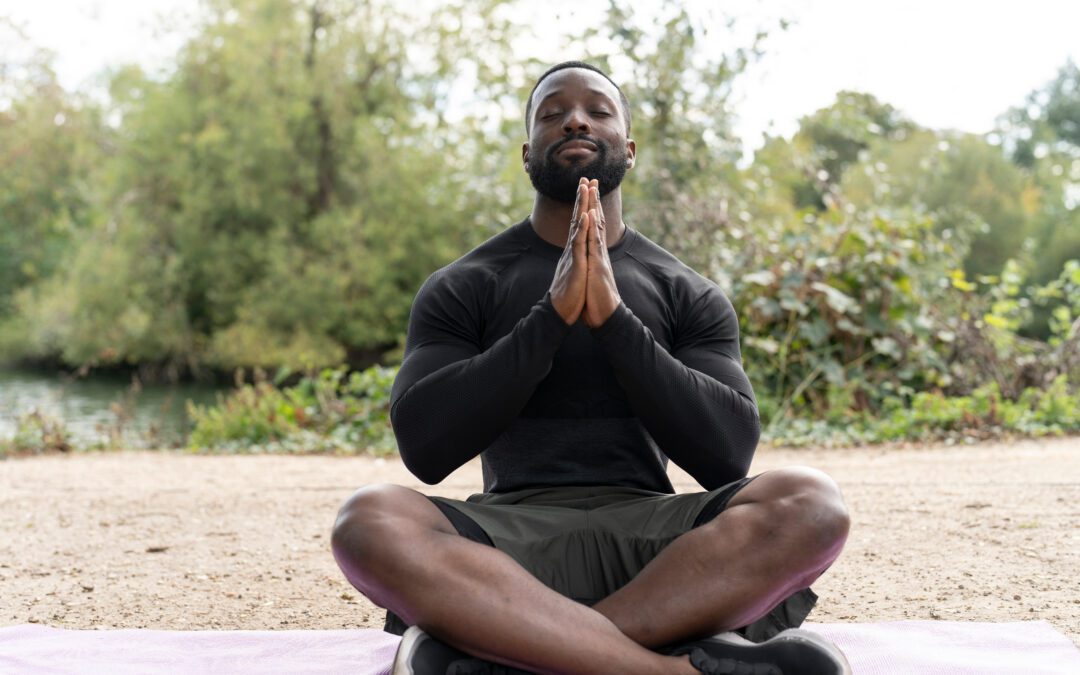Meditation Is Not Just One Thing
When you hear the word “meditation,” what comes to mind? The answer may depend on your experience (or lack of experience) with meditation practice, your faith tradition’s relationship (or lack of a relationship) with meditation, or how you have seen meditation depicted in popular culture.
Maybe your idea of meditation is very specific or perhaps it is a little vague and murky.
Either way, the various forms of mediation—and there are many—can be useful tools for a person in recovery from a substance use disorder.
Let’s take a look at a few forms of meditation practice and how each might serve you well in recovery.
Rest Your Mind on Mindfulness
Mindfulness practice is centered on the idea of staying present in the current moment while allowing your thoughts and emotions to come and go without getting caught up in them or judging them. The roots of mindfulness grew out of longstanding Hindu and Buddhist practice and found a foothold in the United States in the late 1970s.
For those in recovery, mindfulness helps lessen the tendencies to ruminate about the past and worry about the future. The practice of staying present can help keep you on an even keel even during tough moments in recovery.
Take a Breath as a Means of Meditation
Mindfulness practice involves spending time focused on your breathing, and it is the natural rhythm of the breath that is important. Zazen—a technique grounded in the teachings of Buddha—also relies on a practice of focusing on the natural rhythm of your breathing as you contemplate reality and the temporary nature of all things. Other types of meditation, like the Chinese healing practice known as Qigong, involve specific breathing techniques.
Like mindfulness (and the other types of meditation described below), these breathing meditations can help you more effectively deal with stress, which firms up the foundations of your recovery.
Maintain Your Focus on Your Mantra
While many types of meditation ask you to focus on your breath, other varieties employ a mantra as the object of focus. A mantra is a word, phrase, or sound that you repeat during your meditation. In some forms of mantra meditation, you self-select something simple and uplifting to focus on and then chant, sing, or speak it as you meditate. Transcendental meditation is different in two senses. First, your mantra is given to you personally by your instructor, and you repeat it silently while meditating.
No matter the details, mantra meditation can help create a sense of relaxation and inner peace—feelings that support your ongoing sobriety.
Visualize the Impact of Guided Meditation
When you first encounter guided meditation, it may seem as if it is all about someone telling you how to daydream. Often called visualization or guided imagery, this meditation technique involves calling to mind mental images of situations or places that you find calming and pleasant. The difference between this practice and an everyday daydream is found in the details. When practicing guided meditation, the key is to engage all of your senses by imagining what you can see, hear, smell, taste, and feel.
In the early going, it can be helpful to have a guide or counselor gently lead you through the technique by speaking aloud. Eventually, however, you will be able to serve as your own guide, and will be able to take advantage of the ways in which the practice can cultivate a sobriety-supporting sense of calm and well-being.
A Note on Religion and Meditation
Some people are reluctant to try meditation because they conclude that it conflicts with the tenets of their own faith tradition. But while it is true that some forms of meditation are associated with various religious practices and ideas, most meditation techniques can be pursued without reference to a specific faith.
If religion is one of the first things you think about when you hear the word “meditation,” it might be helpful to reframe the practice. The techniques we have described above are strategies for experiencing calmness and relaxation. You could think of them as relaxation practices—or even sobriety practices. In that context, any religious implications may slide away from the way you think about meditation.
Put Your Mind to the Project of Getting Sober
Wooded Glen Recovery Center—located in Henryville, Indiana—was included on Newsweek’s 2023 list of “America’s Best Addiction Treatment Centers.” The honor recognizes the long-term commitment the entire staff of Wooded Glen has made to ensure that each person we serve receives evidence-based, personalized care delivered in a spirit of empathy and respect.
We offer detoxification that allows you to reclaim your sobriety in a safe environment that is free of temptations. Our rehabilitation program—which includes group and individual therapy—can address co-occurring mental health disorders like depression, anxiety, and more. And our promise of a continuum of care ensures that you can start your recovery journey with the support and resources you need.
If you need help, don’t meditate too long. The time to get sober is right now. Wooded Glen can help.

